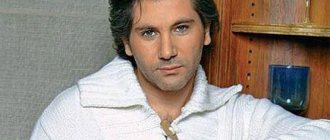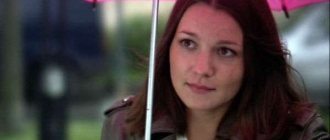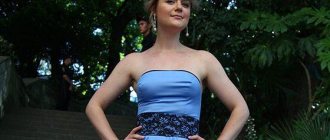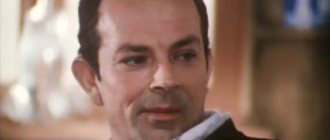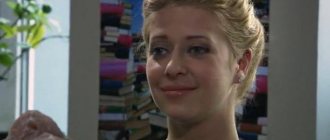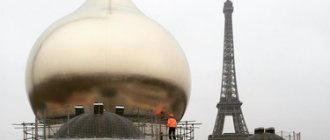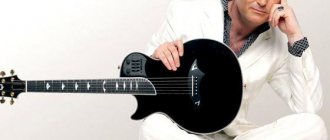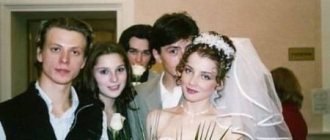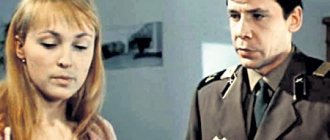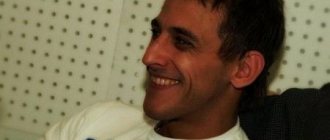In 1712, the future philosopher and teacher Jean-Jacques Rousseau was born into a French family in the Swiss city of Geneva. His father was a watchmaker. Rousseau was left without a mother at an early age and grew up practically an orphan, since his father devoted little time to him, and at the age of 10 he even gave him to be raised by his uncle.
When Rousseau was 13 years old, he was sent to learn a craft. He was a clerk's apprentice, then an engraver's apprentice, but he did not like these occupations and therefore, from 1728, Rousseau set off to wander the country roads of Switzerland, France, and Italy.
Over the years, he was engaged in self-education and self-improvement: natural and social sciences, art and literature, he learned everything during the years of wanderings, which ultimately left their mark on his future destiny.
As a result, Rousseau became perhaps the most outstanding philosopher of his era and his life for modern humanity represents an ever-living story, since he, in fact, is the immortal inspirer of everything progressive and humanistic. Rousseau died in 1778.
Some interesting facts from the biography of Jean-Jacques Rousseau
- A huge role in Rousseau’s life was played by his meeting with the free-thinking abbess of the monastery located in Annecy, who enjoyed the special patronage of the pope. She tried to persuade Rousseau to the Catholic faith by placing him in a Catholic school where missionaries were trained, but this attempt was a complete failure, since Jacques was absolutely indifferent to religion.
- Rousseau was the father of five children . However, despite the fact that in his novel “Emil” he taught how to properly raise a child, he himself did not take part in the upbringing of his children. Moreover, his children were in educational institutions so as not to become, as Rousseau said, adventurers like himself.
- In Russia, the name of the famous philosopher and teacher became known in the 18th century. His works aroused, and still arouse today, enormous interest among Russian philosophers and educators.
- In old Helvetia, which belongs to the highlands of Switzerland, there is a small island located in the middle of the Rhone River, which bears the name of the great educator from France, philosopher, novelist, author of dramatic works and operas, pedagogical and social treatises - Rousseau. There is a small park on the island with miniature kiosks and small tables and chairs placed around them. There is also a monument to Jean-Jacques, as he loved this park very much and spent a lot of time in it when he lived in Geneva.
- Rousseau has always enjoyed wild success with the ladies. They even helped him get a prestigious position in Venice at the French embassy. However, he did not stay in this post for long, since he was obstinate since childhood and therefore did not get along with his superiors. Biographers note that Rousseau was not at all one of the people who built a career, and he not only did not need fame, but also weighed on him. In addition, his father left him an inheritance, so he didn’t really need money.
Rousseau Jean Jacques
Jean Jacques Rousseau is a writer originally from beautiful France. This man condemned official religious beliefs in every possible way. Rousseau always protested the inequality between the nobility and ordinary people, and was also categorically against the unlimited, autocratic power of the king. He promoted equal rights for every person. Making this a reality was his goal.
Rousseau was always for the freedom of people, which was destroyed by the right of private property. He believed that a good, strong state could arise only by concluding an agreement or treaty between free people. Rousseau's reflections on the topic of naturalness, purity of nature, and the idea of human freedom greatly influenced literary works all over the world.
Jean Jacques Rousseau was born on June 28, 1712 in Geneva. He died on July 2, 1778 in the city of Ermenonville. About the childhood of Zh.Zh. Rousseau did not know his mother at all; he was unable to feel the warmth of her hands, because she died a few days after the birth of Jean Jacques. She was the granddaughter of a church minister, her name was Suzanne Bernard. Jean Jacques's father's name was Izac Rousseau. He worked as a watchmaker. In 1722 he was forced to move from Geneva to another city. For several years, Rousseau lived in a Protestant boarding house, which is located near the French border. When Rousseau returned to Geneva, at first he dreamed of becoming a clerk in court, but then began to learn the craft of an engraver. The owner was cruel, and, unable to bear the bullying, he left the city of Geneva in 1728.
In another city, he met a widow, 28 years old. She was a representative of a noble family. She was a very beautiful, well-mannered girl. Her name was Louise-Eleanor de Warens; belonged to the Catholic faith. The girl was under the patronage of the church and the noble duke, who later became the king of Sardinia. This young lady had a strong influence on Jean Jacques, and he accepted the Catholic faith. By this act he deprived himself of his Genevan citizenship.
In 1729, Jean Jacques moved in with Madame de Warens. She took up the task of raising the level of Rousseau's education. At her suggestion, he entered the seminary and then went to study at the choir school. Jean Jacques set off on his travels again, but eventually returned to Madame de Warens. He became her lover. Communication with this noble lady, as well as with her many guests from among the nobility and intellectuals, instilled in Rousseau good manners and a sense of taste. Thanks to his connections with Madame de Warens, Rousseau got a job as a tutor to a Lyon judge. However, he failed to raise his children.
Rousseau in Paris
In 1742, Rousseau moved to France. Here he wants to become famous and earn recognition with his method of recording notes. His version did not include transportation or keys. Jean Jacques gave a presentation to the royal scholars, and then addressed the people by creating a “Dissertation on Modern Music” (1743). At this time he meets the unusual Denis Diderot. Jean Jacques considered him a subtle philosopher.
In 1943, Rousseau became secretary to the French ambassador living in Venice. Rousseau did not get along with him and returned to Paris. There he meets Therese Levasseur, an ordinary woman who wants simple happiness. She became his wife. Rousseau sent his children to an orphanage because... I thought I couldn’t raise them. He had five children.
"Encyclopedia"
Denis Diderot involved Jean Jacques in working with the Encyclopedia. As a musician, Jean Jacques became famous after writing and staging the comedy opera The Country Sorcerer.
In 1749, Rousseau took part in the competition “Did the revival of the sciences and arts contribute to the purification of morals?” After participating, he formulated his philosophical thoughts: he believed that society and man in general were in conflict with nature. Science and art satisfy not only the basic needs of people, but also their pride and vanity.
Rousseau believed that progress leads to the disappearance of humanity in relations between people. His hard work gave him victory in the competition and great fame. In the second competition, he stated his attitude towards social inequality.
Conflict
Rousseau went to Geneva and re-adopted Calvinism, regaining his citizenship and rights. Upon returning to France, he preferred solitude. He spent many years in the countryside. At first he lived in a pavilion, and then in a country house. Relations between Rousseau and Diderot deteriorated. Diderot wrote a play in which he laughed at hermits and loners. Jean Jacques considered this an insult. Rousseau then fell in love with Sophie d'Houdetot, the mistress of Jean-François de Saint-Lambert, who was a good friend of Diderot. Friends decided that Russo's act was unworthy. He himself did not feel any guilt about himself.
The love for his new passion inspired Jean Jacques to create the beautiful tragic novel “The New Heloise.” The differences between him and the encyclopedists were not only the result of his personal life, but also of different directions of philosophical thinking. Rousseau said that kindness and lack of faith are incompatible. These statements caused a lot of discontent.
Theory of moral sentiments
In his pedagogical novel “Emile or on Education” (1762), Rousseau reproached modern methods of education because attention was not paid to the inner world of man. He called the main goal of education to instill goodness and a sense of morality in souls.
"Social Contract"
Rousseau created the work “On the Social Contract, or Principles of Political Law” (1762). In it, he said that when concluding agreements, a person takes the side of the state, which protects social equality, justice, freedom and his will. If the state goes against the will of society, it loses all meaning of its existence. Rousseau gave the role of providing support for morality to the religion of citizens, which should unite faith in God, the immortality of the soul and virtue.
Last years
Everyone accepted Rousseau's teaching very negatively and rejected it, in all spheres of society. Rousseau was condemned by the Paris Parliament for his works and philosophy. He is forced to flee France. He was declared a criminal.
Rousseau hid in Switzerland and England. By 1770 he had achieved fame and recognition among Europeans. He returned to Paris because there was nothing to be afraid of, nothing threatened him anymore. Rousseau completed many of his works and left for Ermenonville near Senlis. There he spent the small rest of his life. He was buried by the Marquis de Girardin right in his park.
The remains of Jean Jacques Rousseau were transferred to the Pantheon during the Jacobin dictatorship. With the help of his teachings, the Jacobins created the cult of the Supreme Being, as well as terror.
The pedagogical legacy of Jean-Jacques Rousseau
Discourse on the Sciences and Arts, written in 1750, brought Rousseau wide fame.
However, the most popular work of art was “The New Heloise,” which he wrote in 1758. This work was, in fact, the predecessor of “Emil”. The author himself was also very fond of “ New Heloise ,” which tells the story of lovers who were forced to separate because love turned out to be powerless in the face of the prejudices of medieval society.
In his last years, Rousseau wrote such works as “Confession,” which is nothing more than a biography and philosophical understanding of his own life, “Discourse on the Government of Poland,” which, like “Emil,” is devoted to issues of education, and “Walks of a Lonely Dreamer.”
Option 2
Jean-Jacques Rousseau (1712 - 1778) was a famous French scientist of the Enlightenment. He studied music, philosophy, literature, botany. The most famous representative of the cultural movement of sentimentalism. Author of 7 musical operas. Many call him the harbinger of the Great French Revolution. He was remembered by his contemporaries for his originality and bold ideas.
Rousseau was born in Geneva. His father, Isaac Rousseau, was a dance teacher and watchmaker. The mother, the pastor's granddaughter, died during childbirth. Soon his father was forced to flee to neighboring Switzerland, hiding from prosecution by the authorities for the crime he had committed. Jean-Jacques stays with his uncle. When he was 11 years old, he lived briefly in a boarding school, then studied with a notary and an engraver. At this time he likes to read a lot and walk. At the age of 16, he left his native Geneva and converted to Catholicism. Throughout his youth, he often moves from place to place, sometimes he simply wanders. He tries to work, but he is not good at work, he does not stay in any one place for a long time. Jean-Jacques often resorts to the help of various patrons, with whom he sometimes treats impolitely. At the age of 24, he presented his first work to the academy - his own system of musical notation, but it was not accepted.
His next work, dedicated to the topic “Did the revival of the sciences and arts contribute to the purification of morals?” is a huge success, as is the third work. Then he writes an opera, “The Village Sorcerer,” which was staged at the king’s court. He settles on the estate of the famous writer, Madame d'Epinay. Fame comes to him. He would release five more works over the next decade. For some time he joins a circle of encyclopedists, and a love drama occurs.
Later, he meets an illiterate maid, with whom he later has 5 children. He will give them all to an orphanage. Rousseau writes novels, conflicts with the government, the clergy, and the philosopher Voltaire. He often changes his place of residence. Subsequently, Jean-Jacques became interested in plants, especially mosses. Throughout his life, he published 21 works, including operas and other musical works, poetry, comedies, philosophical works, treatises, and essays. He died in France at the age of 66.
Jean-Jacques Rousseau is one of the most famous people in the history of art and philosophy. Many books have been devoted to his personality and creative life; his contribution to culture and philosophy and his influence on his contemporaries are enormous. His personality, actions, character are very extraordinary, and sometimes vulgar. There is a monument to Rousseau in Geneva, and in Moscow and St. Petersburg there are cafes popular among the creative intelligentsia named in his honor.
[edit] Worldview
In matters of worldview, Jean-Jacques Rousseau took the position of deism and dualism: he recognized the objectivity of the existence of matter and at the same time argued that God exists as the world will, reason and the source of good. Man, according to Rousseau, consists of a mortal body and an immaterial immortal soul. In the theory of knowledge, sensationalism was absolutized, feelings were considered as the primary form of spiritual activity.
In his work “Reflections on the Origin and Foundations of Inequality between People” (1755), he noted that inequality between the poor and the rich, combined with the inequality of the dominant and the subordinate, the destruction of the natural integrity and harmony of human life form the basis of a civilization of inequality. At the heart of his socio-political views is the concept of a social contract, which is based on the recognition of human freedom and popular sovereignty (“On the Civil Contract, or Principles of Political Law”, 1762). He considered the ideal of government to be a democratic republic based on universal equality.
In the book “Emile, or On Education” (1762), which combines a philosophical and pedagogical treatise and a novel, Jean-Jacques Rousseau developed a humanistic concept of pedagogy, according to which the main task of education is the formation of a person and a citizen through the development of natural inclinations and abilities without the use of violence over his personality.
The main problem in Rousseau's aesthetic concept is the problem of the relationship between art and morality. He considered the ideal of art to be folk spectacles that glorify patriotic deeds and teach generosity and justice.
Childhood and youth
The childhood of the French-Swiss Jean-Jacques Rousseau cannot be called carefree. His mother, Suzanne Bernard, died during childbirth, leaving her son in the care of his father, Isaac Rousseau, who worked as a watchmaker and moonlighted as a dance teacher. The man took the death of his wife hard, but tried to direct his love towards raising Jean-Jacques. This became a significant contribution to the development of the younger Rousseau.
Portrait of Jean-Jacques Rousseau
From a young age, the child studied the works of Plutarch and read “Astraea” with his father. Jean-Jacques imagined himself in the place of the ancient hero Scaevola and deliberately burned his hand. Soon the elder Rousseau had to leave Geneva due to an armed attack, but the boy remained in his home with his uncle. The parent had no idea that his son would become a significant philosopher for this era.
Later, relatives sent Jean-Jacques to the Protestant boarding house Lambercier. A year later, Rousseau was transferred to a notary for training, and later transferred to an engraver. Despite his serious workload, the young man found time to read. Education taught Jean-Jacques to lie, pretend and steal.
The house where Jean-Jacques Rousseau was born and raised
At the age of 16, Rousseau escapes from Geneva and ends up in a monastery located in Turin. The future philosopher spent almost four months here, after which he entered the service of the aristocrats. Jean-Jacques worked as a footman. The count's son helped the guy learn the basics of the Italian language. But Rousseau received his writing skills from his “mother” - Madame de Varan.
Jean-Jacques Rousseau, in some works written with his own hand, presents interesting facts from his biography. Thanks to this, we learn that the young man worked as a secretary and home tutor before he came to philosophy and literature.
